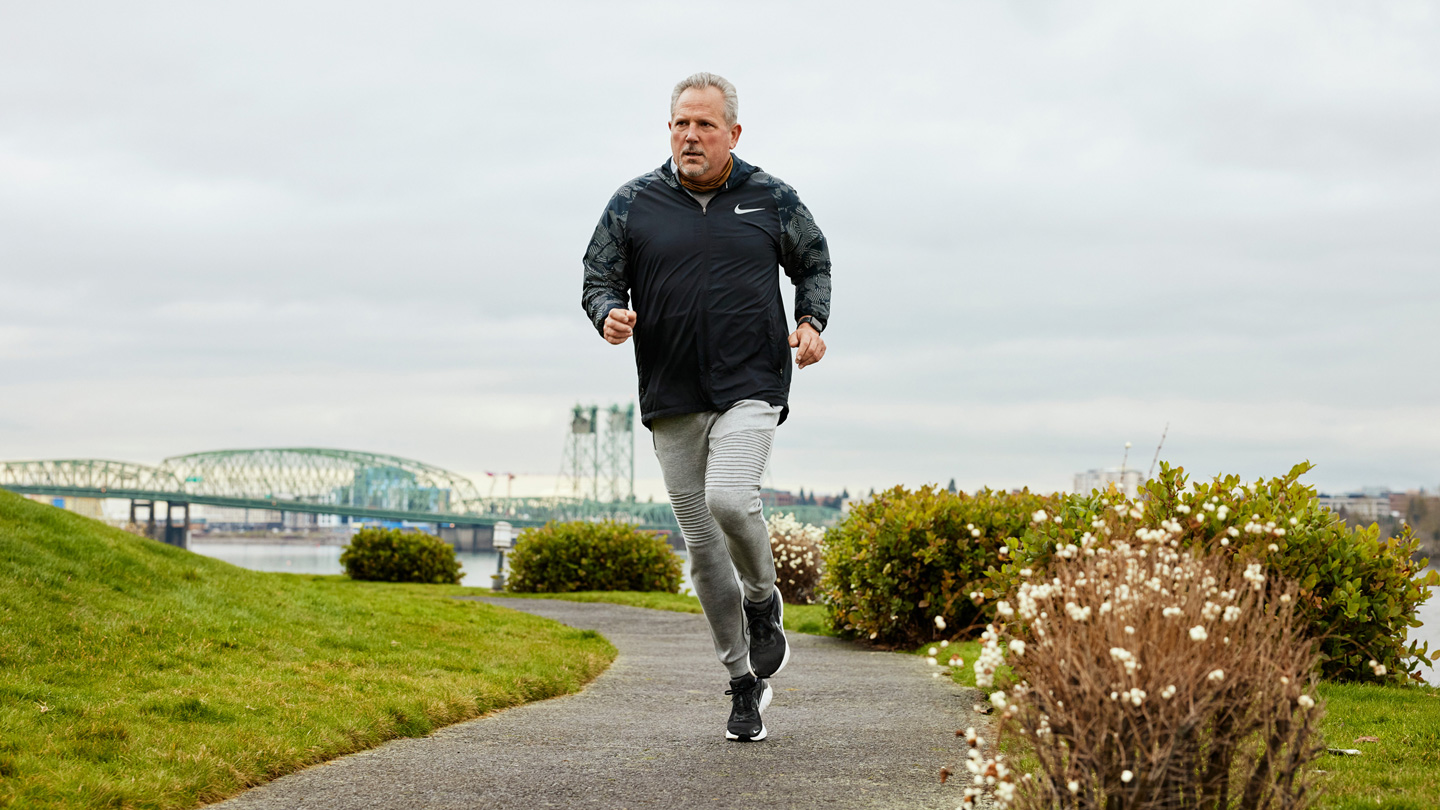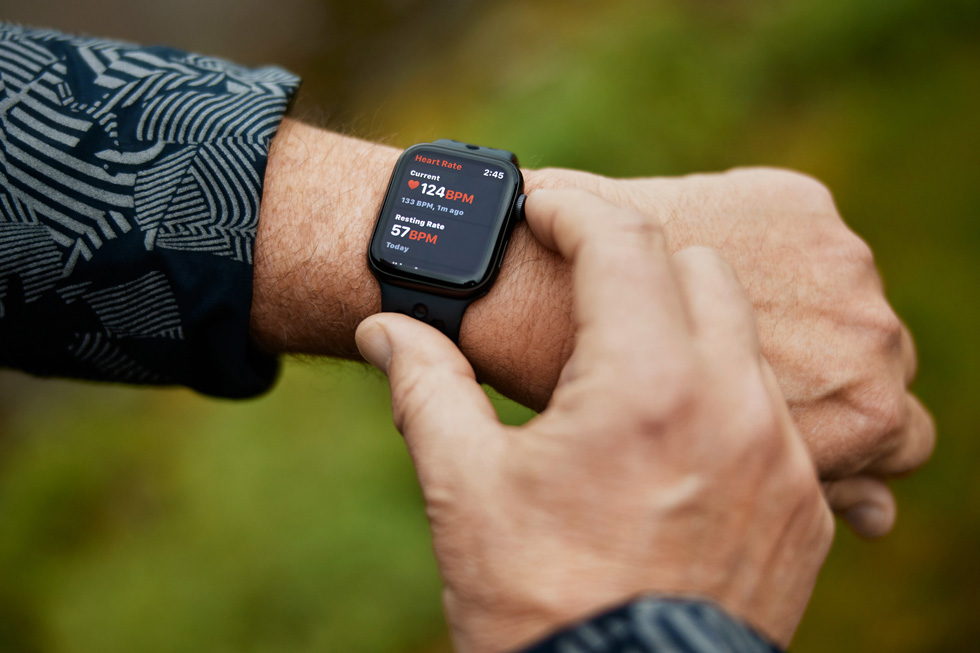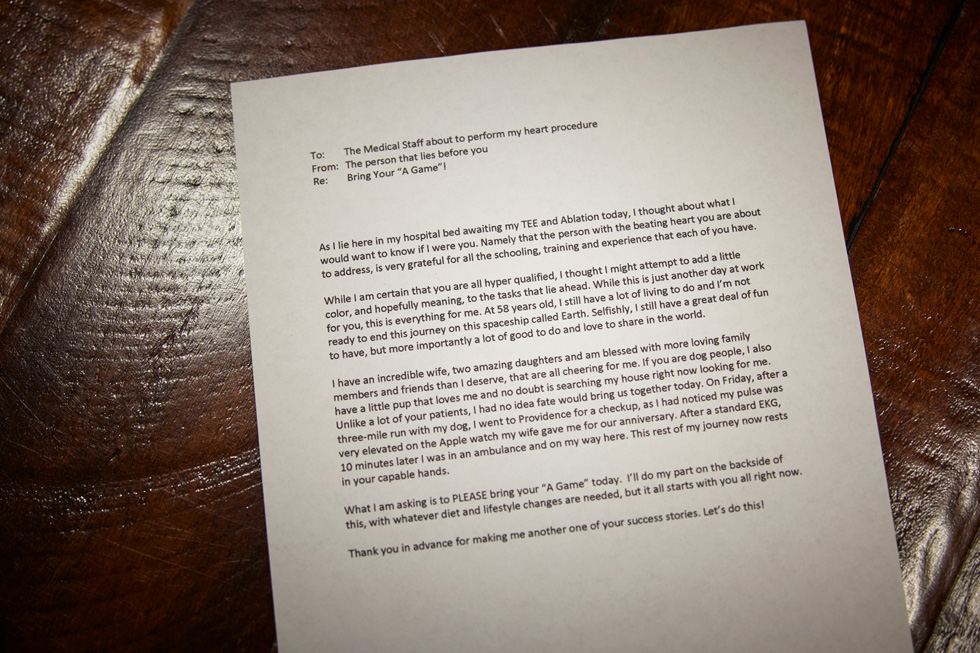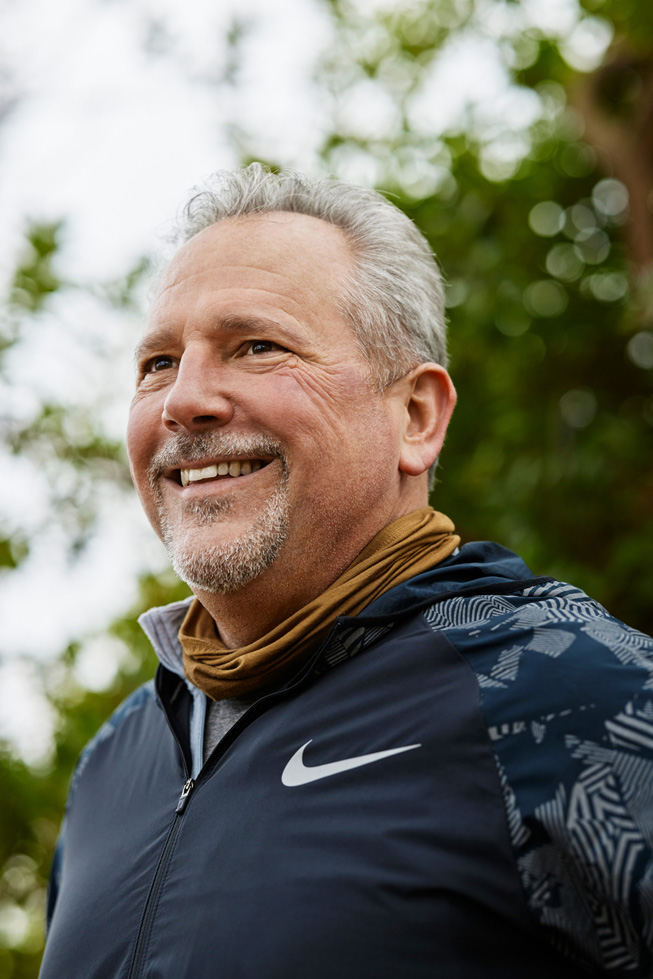FEATURE
February 4, 2021
An Apple Watch anniversary gift and the future it helped change
Last September, Lori March gave her husband Bob an Apple Watch for their 17th wedding anniversary. Bob was always reluctant to spend on himself, so when Lori presented him with the Apple Watch she told him, “An investment in your health is an investment in our future.”
She had no idea at the time how prophetic those words would be.
Bob, a former college-level athlete who also ran half marathons as an adult, immediately started exploring his new Apple Watch. He discovered the Heart Rate app and though he was relaxed, his first reading showed 127 beats per minute. That was high for Bob, but he brushed it off as a fluke.
“I thought, ‘this is nuts,’” Bob says. “If I was easing into a run, or cooling down, I’d definitely be hitting numbers like that.”
Later that day, Bob and Lori noticed more erratic heart rate readings. “I started running and it started going down but then it would come back up. So that’s when I realised something may not be right here.”
The couple saw similar patterns over the next few days, prompting Lori to schedule an appointment for a routine physical.
“I figured the doctor would tell me to practice breathing, try yoga, cut back on sodium or something of that sort,” says Bob. “Instead, 10 minutes after meeting with me, he had me in an ambulance headed to the ER.”
Doctors found an irregular heart rhythm, which caused Bob’s heart to work in overdrive. They said it was like he had been running a constant marathon for the past few weeks and if left unchecked, the results could have been devastating.
Bob March is one of the many Apple Watch users who have been alerted to a potential heart condition through their device. This Heart Month, Apple is encouraging people to learn about and take control of their health. Apple Watch features like heart rate monitoring with the Heart Rate app, high and low heart rate notifications, irregular rhythm notifications with the ECG app, and Cardio Fitness notifications can help users learn more, empowering them to follow up and have more enriched conversations with their health care provider.
In the days leading up to being gifted the Apple Watch, and even during his meeting with his doctor, Bob felt fine. But according to the American Heart Association, an arrhythmia can commonly go unnoticed even in otherwise healthy individuals because it is often asymptomatic. If left untreated, it can sometimes lead to serious conditions, including stroke.1
Apple is collaborating with leading research institutions to conduct a number of heart health studies that are still accepting applicants to explore how Apple Watch can help drive even greater scientific discoveries. They include the Apple Heart and Movement Study, the Heartline Study, and University Health Network’s Heart Failure Study. Anyone can participate in the Apple Heart and Movement Study by downloading the Research app from the App Store.
On the morning of October 19, 2020, just after Bob, then 58, was put under anesthesia, one of the doctors in the operating room read aloud a note from Bob. It was addressed to “the medical staff about to perform my heart procedure.”
“As I lie here in my hospital bed awaiting my Ablation today, I thought about what I would want to know if I were you. Namely that the person with the beating heart you are about to address is very grateful for all the schooling, training, and experience that each of you have.”
The note continued: “Unlike a lot of your patients, I had no idea fate would bring us together today…Thank you in advance for making me another one of your success stories. Let’s do this!”
Bob’s procedure went extremely well and now, only a few months later, he’s back to running alongside his dog. He and Lori credit his Apple Watch for changing their future.
“We truly believe that it saved his life,” Lori says. “It doesn’t get any bigger than that.”
Share article
Images of Bob and Lori March




